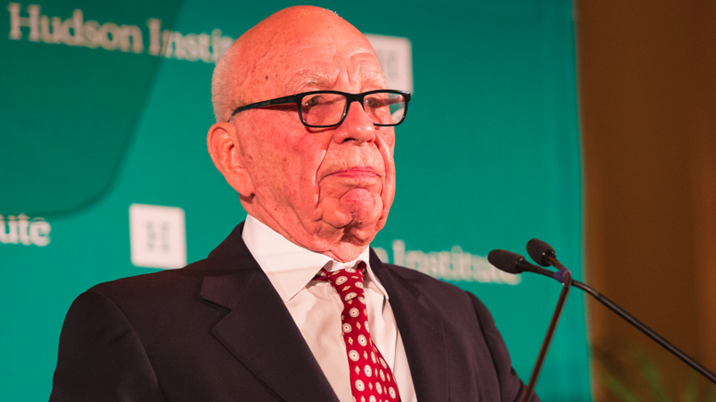
Last Thursday, it was announced that Rupert Murdoch was to step down as chair of Fox and News Corp.
Apparently, he will become ‘chairman emeritus’ of the two corporations. Quite what that will mean in practice, no one can be sure. As former Sun editor Kelvin MacKenzie put it: “He’s going to be sitting in the back seat of the car while Lachlan drives the damn thing, and I should think it’ll be a pain in the backside.”
As you might expect, lots of people had lots to say about the departing media mogul. Here are a few snippets:
- “He is an admired, feared and even loathed figure in Australia, the UK and US, but there is no doubting his achievement in building the first global media empire and the single-mindedness and passion – the obsession – he has brought to that ambition for more than 70 years.” (Stephen Bartholomeusz in The Sydney Morning Herald)
- “Anti-elitism is the guiding philosophy, and it has made Murdoch a vast fortune. Riddled with contradictions it might be, but it’s not fake. Its roots lie in his early life in Australia, where there flourished what the scholar David McKnight calls an unofficial culture that was “egalitarian, despised pretence and disliked elites – defined so as to include intellectuals”. (Jonathan Freedland in The Guardian)
- “The defining characteristic of Murdoch’s journalistic empire isn’t so much its extreme conservatism, but its disengagement from anything resembling ethics or scruples or even the consequences of what have often been outright lies.” (Michael Hiltzik in the Los Angeles Times)
- “In the 1980s, Murdoch did something that no other press baron had dared do — freed the newspaper industry from the death grip of the print unions. Thanks to the unions’ ability to stop the presses, newspapers were, as the columnist Bernard Levin put it, “produced in conditions which combined a protection racket with a lunatic asylum,” vastly overmanned and riven with corrupt practices.” (Adrian Wooldridge in The Washington Post)
- “Rupert Murdoch’s empire used passion and grievance as fuel and turned it into money and power. His tabloids ran on the idea of publishing for readers as they were, not according to some platonic ideal of how one wished them to be. That meant pinups and prize giveaways and blaring scandal headlines.” (James Poniewozik in The New York Times)
- “Murdoch’s last big newspaper gamble was to plump for paid digital subscriptions, in defiance of the conventional wisdom that editorial content had to be given away for free, to maximise readership. Despite hiccups, the digital offering of The Sunday Times and The Times is now highly profitable. With that move, The Sunday Times shaped the paid-for model into which online media has evolved.” (Martin Ivens writing in The Sunday Times)
I will give Adrian Wooldridge, writing in The Washington Post, the last word: “Murdoch is the only contemporary figure who can be spoken of in the same breath as the great press barons of yesteryear: Alfred Harmsworth, the Napoleon of Fleet Street who invented the tabloid; William Randolph Hearst, who perfected the arts of sensationalism, salaciousness and war-mongering; and Lord Beaverbrook, who competed with Hearst in his enthusiasm for blurring the line between reporting the news and making it. If Hearst gave the world Orson Wells’ Citizen Kane, and Beaverbrook Evelyn Waugh’s Lord Copper, Murdoch gave it Logan Roy, the foul-mouthed master of family dysfunction.”
You can catch James Evelegh’s regular column in the InPubWeekly newsletter, which you can register to receive here.










